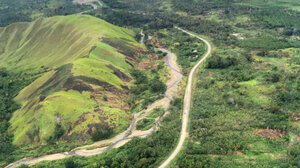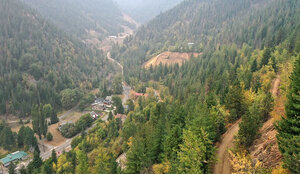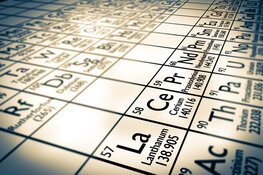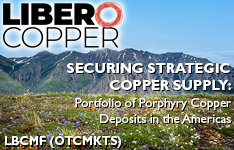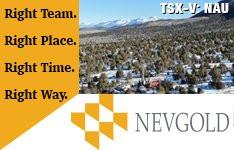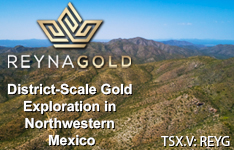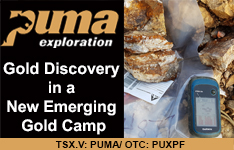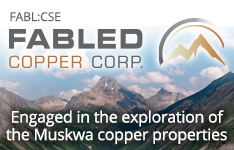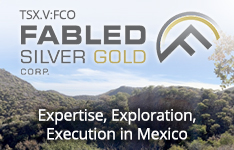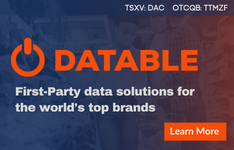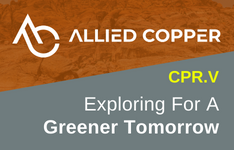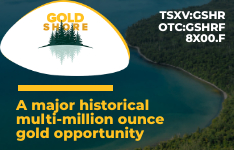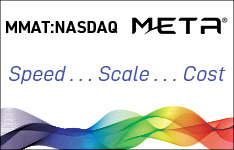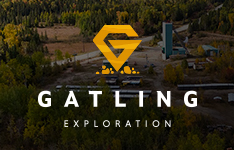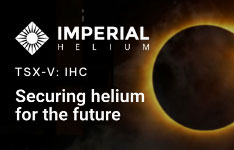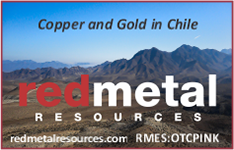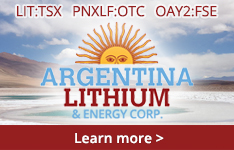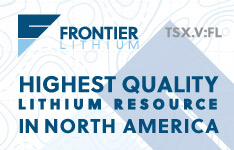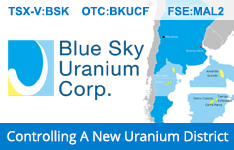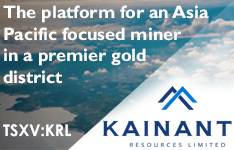Several of our top gold companies have great potential ahead, despite some lackluster recent results in some cases.
Cautious guidance belies potential at combined Agnico
Agnico Eagle Mines Ltd. (AEM:TSX; AEM:NYSE) reported a modest miss on higher costs while providing lower guidance than some expected. However, Agnico is known as a conservative company, and it is no surprise that it would be cautious in forecasting production and costs following their merger with Kirkland. The miss was largely because of a Covid outbreak in Nunavut, where Agnico has operations, causing production to come in around 12% below expectations.
As for the guidance, it is lower than prior estimates for Agnico and Kirkland separately. It is likely an achievable target, however, with room for outperformance. Agnico is projecting a reduction in output at Kirkland’s flagship Fosterville, due to declining grades. The company also announced it would not resume mining at Hope Bay for the time being while it focuses on exploration to build the reserves.
New CEO steps down in culture clash
At the same time as the fourth-quarter results were released, CEO Tony Makuch, who had built Kirkland into a solid intermediate, in a surprise move stepped down as both CEO and director, just 16 days into the merger. Reports indicate a culture clash, with the hard-charging Australian bumping up against Agnico’s famously conservative and consensus style of management. Ammar Al-Joundi, who has been president at Agnico since 2015, was named CEO in addition to president. The move confirms the transaction as an acquisition by Agnico rather than “a merger of equals,” with Agnico personnel now likely to fill most head office slots going forward. The change is on balance positive, since it avoids the potential for ongoing clashes between the former Kirkland and Agnico officers and makes the company’s strategic direction clearer.
Agnico said at the time of the merger that though cost savings were not a driver of the merger, nonetheless there were various synergies, beyond combining head offices. Agnico now thinks it can achieve cost savings well above the original estimate of $2 billion, saying last week that $3 billion of savings over 10 years had been identified, though adding that not all of them would come to fruition. These sound like nice big round numbers, but in a discussion with Mr. Al-Joundi, the granular details of specific savings made it clear that these were real. Part of the savings come from leveraging existing infrastructure at Kirkland’s Macassa Mine for development of Agnico’s AK and Upper Beaver deposits.
A consistent dividend payer
Like other gold miners, Agnico raised its dividend, up 14% to 40 cents a quarter for a 3% yield. Agnico has paid a dividend continuously for 38 years without any reduction, and it never wants to have to cut the dividend. I am nervous that many of the new dividend plans introduced may not be sustainable in poor markets, or companies needing capital for a project may raise new equity at a higher cost than the cash being distributed. A $500 million share buyback program was also introduced with the potential to buy back around 2% of the shares.
Agnico has a focus on safe jurisdictions, low costs, and exploration upside. Canada represents about 85% of near-term production for the combined company. Given the slippage in Agnico’s stock price since it announced the acquisition of Kirkland––not unusual in such mergers––its valuation metrics are now in line with other senior miners. Despite a $10 rally in the last month, Agnico is still a buy.
Another miss for Pan American, but two significant projects make progress
Pan American Silver Corp. (PAAS:TSX; PAAS:NASDAQ) (PAAS, Nasdaq, 26.58) reported another quarterly miss, with guidance lowered as one mine (Morococha) was placed on care and maintenance; continued Covid limitations in some countries also hurt both last year and this year’s forecasts. Operating cash flow for the quarter, for example, came in at $118 million versus analyst expectations of over $150 million. It should be noted, however, that 2021 production was up 11% over 2020.
Looking ahead, production of both gold and silver is projected to be lower this year, by 4% and 8% respectively. The company is considering alternatives for Morococha, and could well sell the asset which represents about 2% of NAV. (It is a complex situation involving an agreement with the adjacent mine to move its processing facility.) But amid a flood of information released by the company were some promising items.
This deposit keeps growing
Exploration results at La Colorada skarn continued and the company clearly sees this deposit, still open at depth, to be very significant for its future growth, with a multi-decade life. As CEO Michael Steinmann noted, "one does not often find this kind of mine in silver.” Recent drilling has been on trying to find the extent of the ore body, "but we are still finding mineralization.” The company plans to spend $75 million in exploration and development of the ore body this year.
Less certain or immediate but equally significant is the progress at the possible restarting of Escobal in Guatemala. As discussed, the Supreme Court ruled that the government had violated laws by lack of consultation with the indigenous peoples around the mine site prior to granting the permit, ordering the mine closed. This led the previous owners to sell the mine (and the company) to Pan American.
It's a long process at Escobal, but the prize is worth the wait
The consultations are between the government and the local communities, with Pan American an observer. No allegations against Pan Am, which continues with local social support, have been made. The consultations were delayed repeatedly because of Covid, but this year have restarted. Last year, a total of three meetings were held, but already this year there have been two more meetings. It should be noted that the current consultations are simply to determine how the main consultations should occur, so this will be a long process with 2024 likely the soonest the mine would restart.
Importantly, with the mine on care and maintenance, at a cost of $2 million a month, “everything is in great shape” and it could have a short re-start period once all approvals are granted.
Like most other gold companies, Pan American announced a new dividend policy. In addition to a base dividend of $0.10 per quarter, it will pay an incremental dividend based on the net cash position. Under this policy, the next quarter’s dividend has been increased to $0.12. Buy if you do not already own.
Growth at Osisko is in the bag
Osisko Gold Royalties Ltd. (OR:TSX; OR:NYSE) (OR.NY, 13.70) reported good revenue and earnings, but this was not a surprise since production numbers had already been released. The company announced guidance of between 90,000 and 95,000 of gold equivalent ounces (GEOs), an increase from last year’s 80,000. This year’s guidance involves revenue from 20 producing mines, and now includes a partial year of production from its Renard diamond stream; the diamond market has been extremely strong. It also released an initial five-year forecast, building up to 130,000 GEOs plus by 2026. There are also projects not included in its five-year forecast that could be in or very close to production by then.
The built-in growth is the main story at Osisko, with several mines on which it holds royalties or streams coming from the “greater Osisko stable” and the result of the “incubator” model. That model, and the cash poured into exploration, was much criticized, but the fruits are now being seen.
Exposure to high-grade Trixie
When Osisko spun off Osisko Development (ODV) into a separate, self-financing company, it retained over 75% of ODV shares, minimizing the perceived advantages of the split. But it always stated its aim to reduce the ownership, only to do so judiciously, and partly as ODV raises equity. Last month, in a major raise to acquire the Tintic project in Utah, ODV raised about $200 million, cutting Osisko’s interest in ODV to about 45%. This puts it firmly on the road to not having to consolidate ODV’s financials, which will be a significant move for market perception, further making Osisko be and appear to be a more pure royalty company, which should attract a premium valuation.
In conjunction with the purchase of Tintic and its existing small Trixie Mine, Osisko pledged to invest between $20 million and $40 million for a stream. The very high-grade Trixie Mine has exploration potential as ODV, flush from its equity raise, puts cash in the ground.
Osisko ended the year with $82 million cash (excluding ODV cash, and before the $20 million already paid for the Tintic stream). It has about $440 million available on its credit facility, giving it a good balance sheet. It also has $300 million in convertible debentures due at the end of this year, but they could be repaid from the credit facility if need be. Hold, and look for pullback to buy.
At last, Anglo tells us about an Orogen royalty ground
Orogen Royalties Inc. (OGN:TSX.V) (OGN, To., 0.455–0.47) announced that Anglo Gold has provided an initial resource estimate for the Silicon deposit, on which Orogen holds a royalty, of 3.4 million ounces. This excludes the neighboring Merlin area, on which Orogen also holds a royalty, and includes only the oxides with sulphides to be explored later.
Silicon is part of a large land package Anglo holds near Beaty. It plans on starting production at the North Bullfrog deposit (outside Orogen’s royalty land, but on which another of our holdings, Altius, holds a royalty), with Silicon to follow in five to six years. Anglo’s CEO said he expected production from the Beaty deposits for at least 15 years. This announcement is positive for Orogen because for the first time, some hard numbers can be put on the deposit which clearly has a lot of potential to grow. The resource announced last week is clearly just the beginning. Orogen is a buy, but at the bid; don’t chase.
Altius has many irons in the fire that could significantly add to revenue
Altius Minerals Corp. (ALS:TSX.V) (ALS, To., 24.02) announced it has closed the transaction selling two uranium projects to Labrador Uranium in exchange for shares (representing 17% of Labrador Uranium) and a 2% royalty on its projects. As usual for Altius in such transactions, one might expect it to sell down its equity interest over time, while holding the royalty.
Altius has several opportunities for meaningful additions to its revenue streams. Potash (see above) is already strong but any disruption of supplies could see existing Canadian mines increase production (with Altius, which has royalties over most mines in Saskatchewan, to benefit). New mines have long lead times since they tend to be capital intensive and technologically challenging.
Kami survives low prices and bankruptcy to move towards production
Its long-held Kami iron-ore mine could start advancing to production as owner Champion moves to produce a feasibility study by mid-year. Kami’s ore is particularly high-quality with low impurities and could be in production within two years after the feasibility. The assets has just missed coming into production a couple of times in the past, because of a collapse in iron-ore prices ending with the bankruptcy of the previous owner. But now prices are strong, and in particular the high-quality ore is in strong demand.
New discoveries moving ahead
As discussed above, Altius holds a royalty on the entire Beaty complex which Anglo is exploring. The North Bullfrog (outside of Orogen’s royalty but within Altius’) could be in production in less than three years. Anglo thinks the complex––Altius hold a royalty on the entirety––will be producing 300,000 ounces a year for at least 15 years.
Altius also announced that a discovery was made at the Chapada mine, on which it holds a 3.7% copper stream (the rate reducing on certain hurdles). Operator Lundin Mining announced the discovery following initial drilling some 15 kilometers from the current mine. It commented that the grades at the Sauva discovery, which is open in all directions, are “significantly higher” than the current ore at Yamana, raising the potential to start trucking Sauva ore to the processing facilities. Optimization studies are ongoing.
Vale is also having exciting results in drilling under the existing Voisey’s Bay deposit. And there are other potential near-term winners in Altius’ portfolio, including an IPO of Lithium Royalty (in which Altius owns equity as well as a royalty over projects), and the prospect generator portfolio.
First year at renewables sub strong, with more to come
Altius Renewal Royalties, of which Altius owns 59%, reported a “transformative” first year as a public company. ARR owns 50% of the GBR joint venture with Apollo Capital, which invested $123 million into renewal energy projects, holding 16 royalties on U.S. based hydro, wind and solar projects. CEO Brian Dalton said the pipeline was strong.
Several of these assets offer both near-term (almost) certainty and others longer-term high potential. If any two or three are successful, the revenue increase for Altius within three years could be very meaningful, making Altius––a well financed company with broad diversification and top management, and a long-time “core” holding–-still a good buy for long-term holders.
Not so bad for Almadex
Almadex Minerals Ltd. (DEX:TSX.V) (DEX, To., 0.295): the recent Mexican Supreme Court ruling, which ruled that Almaden’s mineral title on the Ixtaca mine (on which Almadex holds a royalty) was invalid, included two positive decisions. First, the court ruled that Mexico’s mineral title law was constitutional. And second, the court ordered the relevant Ministry to re-issue Almaden’s titles following the required consultation with local indigenous communities. So the ruling in its totality is not as bleak as it originally appeared, though adds a delay. Hold.
Originally published on March 6, 2022.
Adrian Day, London-born and a graduate of the London School of Economics, is editor of Adrian Day’s Global Analyst. His latest book is "Investing in Resources: How to Profit from the Outsized Potential and Avoid the Risks."
Disclosures:
1) Adrian Day: I, or members of my immediate household or family, own securities of the following companies mentioned in this article: Orogen, Altius. I personally am, or members of my immediate household or family are, paid by the following companies mentioned in this article: None. My company has a financial relationship with the following companies mentioned in this article: None. Funds controlled by Adrian Day Asset Management, which is unaffiliated with Adrian Day’s newsletter, hold shares of the following companies mentioned in this article: All. I determined which companies would be included in this article based on my research and understanding of the sector.
2) The following companies mentioned in this article are billboard sponsors of Streetwise Reports: None. Click here for important disclosures about sponsor fees. The information provided above is for informational purposes only and is not a recommendation to buy or sell any security.
3) Statements and opinions expressed are the opinions of the author and not of Streetwise Reports or its officers. The author is wholly responsible for the validity of the statements. The author was not paid by Streetwise Reports for this article. Streetwise Reports was not paid by the author to publish or syndicate this article. Streetwise Reports requires contributing authors to disclose any shareholdings in, or economic relationships with, companies that they write about. Streetwise Reports relies upon the authors to accurately provide this information and Streetwise Reports has no means of verifying its accuracy.
4) This article does not constitute investment advice. Each reader is encouraged to consult with his or her individual financial professional and any action a reader takes as a result of information presented here is his or her own responsibility. By opening this page, each reader accepts and agrees to Streetwise Reports' terms of use and full legal disclaimer. This article is not a solicitation for investment. Streetwise Reports does not render general or specific investment advice and the information on Streetwise Reports should not be considered a recommendation to buy or sell any security. Streetwise Reports does not endorse or recommend the business, products, services or securities of any company mentioned on Streetwise Reports.
5) From time to time, Streetwise Reports LLC and its directors, officers, employees or members of their families, as well as persons interviewed for articles and interviews on the site, may have a long or short position in securities mentioned. Directors, officers, employees or members of their immediate families are prohibited from making purchases and/or sales of those securities in the open market or otherwise from the time of the decision to publish an article until three business days after the publication of the article. The foregoing prohibition does not apply to articles that in substance only restate previously published company releases. As of the date of this article, officers and/or employees of Streetwise Reports LLC (including members of their household) own securities of Agnico Eagle Mines, Orogen Royalties, Almadex Minerals, Pan American Silver, Osisko Gold Royalties and Altius Minerals, companies mentioned in this article.
Adrian Day's Disclosures: Adrian Day's Global Analyst is distributed by Investment Consultants International, Ltd., P.O. Box 6644, Annapolis, MD 21401. (410) 224-8885. Publisher: Adrian Day. Owner: Investment Consultants International Ltd. Staff may have positions in securities discussed herein. Adrian Day is also President of Global Strategic Management (GSM), a registered investment advisor, and a separate company from this service. In his capacity as GSM president, Adrian Day may be buying or selling for clients securities recommended herein concurrently, before or after recommendations herein, and may be acting for clients in a manner contrary to recommendations herein. This is not a solicitation for GSM. Views herein are the editor's opinion and not fact. All information is believed to be correct, but its accuracy cannot be guaranteed. The owner and editor are not responsible for errors and omissions. ©2021. Adrian Day's Global Analyst. Information and advice herein are intended purely for the subscriber's own account. Under no circumstances may any part of a Global Analyst e-mail be copied or distributed without prior written permission of the editor. Given the nature of this service, we will pursue any violations aggressively.



